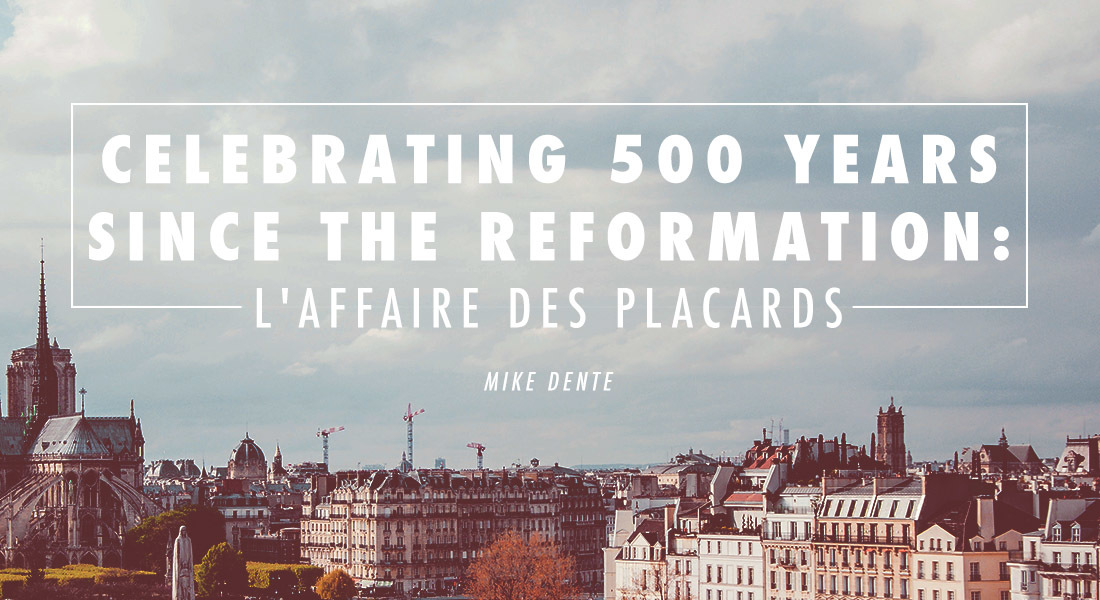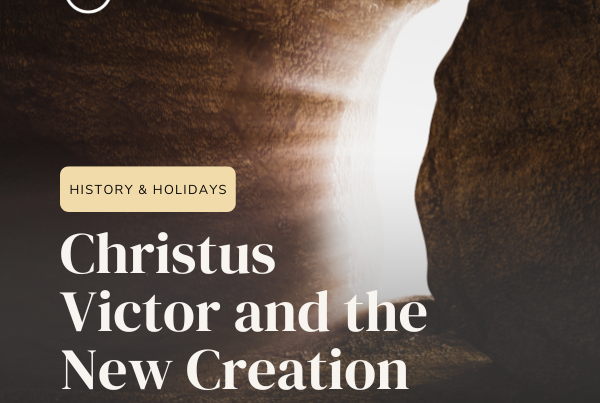
Does God work in patterns? If He works miraculously in one area, does that mean He will do the same thing in another? Sometimes we hear of a person who has done extraordinary things for the Lord. Inspired, it’s natural to wish we’d been there or look for a way of replicating their work. We can’t go back in time; we can’t go around imitating other people’s achievements, but we can celebrate what happened.
One such event was Martin Luther’s 95 thesis he attached to the church door in Wittemberg, Germany, but 17 years after that event, a similar action was executed in the name of reforming the church that became known as “the Affair of the Placards” or “posters” in old French. The consequences were not as positive as Luther’s move. But for the kingdom of France, it was equally decisive. The Affair of the Placards provided an example of how God may do one thing in one place, but that does not guarantee He’ll do the same in another. He is after all, God.
The Reformation had been spreading roots behind the scenes for some time.
Thanks to the work of Jacques Lefevre d’Etaples, an aged professor at the Sorbonne, of whom Erasmus spoke fondly, he led his students to look to the Scriptures for inspiration and worked hard to make them understood by the people in their language. He released a French New Testament one year after Luther’s German text and commentaries on the Gospels and Epistles in the following years.
The Sorbonne reacted violently to Lefevre d’Etaple’s translation, burning it in the streets for fear it would propagate Luther’s ideas in France. He continued his work and poured into the lives of men like Guillaume Farel, who became one of the more outspoken and active evangelists of that time. He preached to all who would listen, traveling all over the Eastern half of the kingdom, and often found himself in trouble with both civil and ecclesiastical authorities.
Another important person to consider in the Affair of the Placards is Francis I, King of France.
Francis was a strong leader, centralizing his power and bringing in the influences of the Italian renaissance. He hoped to attain peace in his kingdom that his rival in Germany, Charles V, hadn’t with the Lutherans. According to historian Patrick Cabanel, Francis I may have even entertained the idea of reformation without making any formal adherence. In fact, he called up Lefevre d’Etaples to be the preceptor of his children in 1526.
The king of France was a souverain by divine right, meaning God, not the Pope gave him the right to rule his people. He was a Catholic monarch and protector of the Church, though he held no particular affection for the Medici Pope Leo X during Martin Luther’s day. In fact, John Calvin’s aim at writing his Institutes of the Christian Religion were to win over the king.
By October 1534, the world was different than in October 31,1517. Martin Luther just published his entire translation of the Bible in German; Ulrich Zwingli had already died on the battlefield, and this was the year Henry VIII would declare himself the head of the Church of England. Maybe these political changes inspired Antoine Marcourt, a pastor from Neufchatel and Guillaume Farel, to draft a new text, a sort of 95 thesis of their own. Judging from their writing, they hoped to start a revolution. They wouldn’t just tack up this message on the door of Notre Dame in Paris; they had much bigger plans.
“True arguments against the horrible, great and unbearable abuses of the papal mass, invented directly against the Lord’s Supper, the only Mediator, and only Savior, Jesus Christ.” (personal translation of a modern version by Marianne Carbonnier-Bukard). This is how they began their four thesis that they hammered out in the most violent terms, including Scripture references. Marcourt attacked the doctrine of transubstantiation as a dangerous heresy, an absurdly difficult word to pronounce, and a trap from hell to all who take the Lord’s Supper.
Once they finished drafting their work, they printed it out and recruited a small “army” of passionate French Protestant militants.
On the night of the October 17-18,1534, the band of evangelists posted Marcourt’s handiwork everywhere they could in Paris, Blois, Tours, Orléans and Rouen, including the king’s bedroom door, and according to some sources, even in his pocket. As expected, they were able to get Francis’ attention but certainly not the way they hoped. For the king, this was a breach in security; this was an attack on the mother church he was called to protect; this was an affront to his God-given authority, and this was high treason. Thus, in the course of one night, a king who was open to Protestantism, if for no other reason than to better his German rival or to please his sister Marguerite, who favored the new Lutheran doctrines, became a bitter enemy of the Reformation. Francis then took action that would eventually plunge his country into a series of religious wars, costing countless lives and is considered even today as one of the worst testimonies to Christianity in France.
This was a hard blow, but we cannot separate men from their time and judge them by our own standards.
Farel and Marcourt acted thoughtfully and prayerfully with the intention of bringing the Gospel to the highest courts of France. And all was not lost. John Calvin escaped to Geneva, and persuaded to stay by Guillaume Farel, developed one of the more successful theocratic societies over the following years.
What do we do with the Affair of the Placards?
At the least, may it be a reminder that what works for someone in one country doesn’t always work for another. In the end, we are called not to look so much for what “works,” but look to the One who is working in us and calls us to follow Him. He is the Lord of the Harvest.









